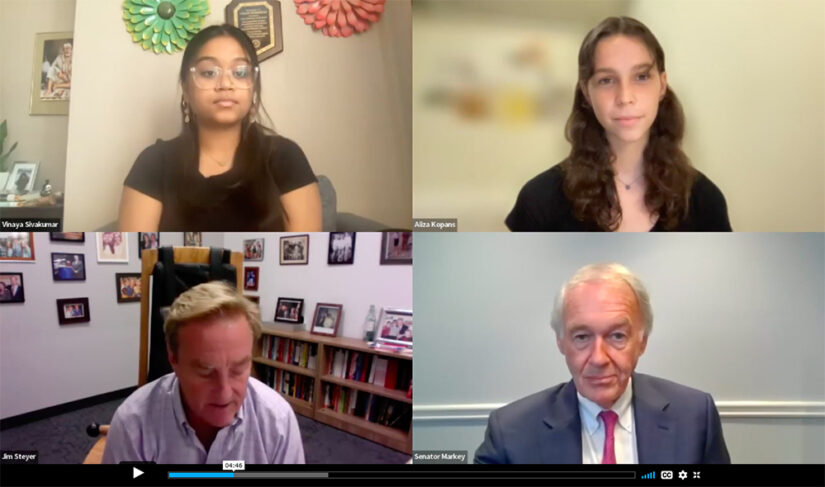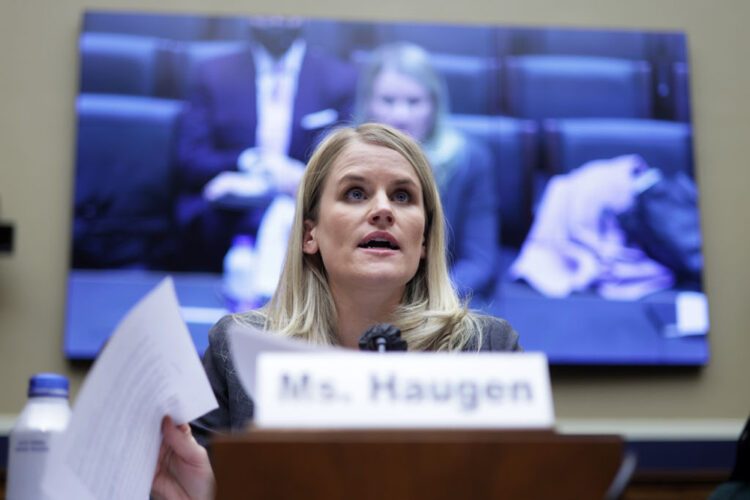[ad_1]
No paid access. No pop-up ads. Keep The 74 free for all with a generous donation.
Sen. Ed Markey was being asked about the viability of new children’s online privacy laws when he took a brief but awkward pause.
The Massachusetts Democrat, who has long advocated for consumer privacy and has become a key opponent of tech companies like Meta for monetizing user data, joined a Zoom call Tuesday night to rally support for two bills he said would protect children from algorithmic manipulation social networks. . But it also brought bad news: The legislation has stalled in Washington despite bipartisan support.
This week, advocates are pushing bipartisan bills — the Kids Online Safety Act and the Kids Online Privacy Protection Act 2.0 — to cross the finish line. In a letter Monday, 145 groups, including Fairplay and Common Sense Media, called on lawmakers to pass legislation to protect youth mental health, which is currently considered the lowest in the country.
But Markey seemed to have forged a path that required herculean efforts.
“Only the paranoid survive,” Markey said, adding that the legislation will pass if supporters — and youth activists in particular — call their lawmakers and demand they “take it out of the pile” and make it a priority. “We’re going to try and see it through to the finish line, but we need your energy levels to keep going higher and higher over the last few months, and we will.”

The legislative push comes a year after a Facebook whistleblower released research that found the social media app Instagram was having a detrimental effect on the mental well-being of young people, especially teenage girls. Whistleblower Frances Haugen urged lawmakers to regulate social media companies — Meta owns Facebook and Instagram — which she accused of chasing “astronomical profits” while knowingly putting their users at risk. A leaked internal study revealed the company knew Instagram was exacerbating the “body image issues of one in three teenage girls,” who blamed the social media platform for “increasing levels of anxiety and depression” and suicidal thoughts in some.
Under the Children’s Online Safety Act, tech companies will be held liable if they allow young people to access content deemed harmful, including material that promotes self-harm, eating disorders and substance abuse. It also requires parental controls that can be used to block adult content and examine systems to verify the age of users “at the device or operating system level.”
The Children’s Online Privacy Act 2.0, which expands on legislation Markey championed in 1998, would include older teens, ban targeted advertising aimed at children, and require companies to offer an “eraser” that allows children and teens to delete their personal information.

But as Sen. Richard Blumenthal said Tuesday, tech companies with deep pockets are standing in the way.
“Our obstacles here are the big tech lobbyists,” he said. “They have armies of lobbyists. They are paid, they are paid very well. They’re hiring them to block this law.”
While the legislation is designed to protect children, some digital privacy experts say the rules could have significant unintended consequences — and could lead to an age-verification system where all Internet users are forced to submit documents such as driver’s licenses, requiring from them to transfer personal information to technology companies.
At Zoom’s call to support the bills was Vinaya Sivakumar, a high school student from Ohio who created her first social media profile when she was 12 years old. According to her, what at first seemed harmless, quickly affected her health. .
“It just turned into something that constantly supported actions and thoughts like self-harm and eating disorders, and it really never left my field of vision,” Sivakumar said, referring to the stream of content she believes was a malicious one that fed her algorithms. “It almost pushed me to make decisions that I didn’t necessarily think were my own, and my mental health was at its worst.”
Christine Bride, an Oregon mother and digital safety advocate, pleaded with lawmakers to pass legislation for children like her 16-year-old son Carson, who took his own life in 2020 after being “brutally bullied” by other kids on Snapchat who used third-party apps to hide their identity. Last year, Bride filed a lawsuit against Snap, the company that owns the social media app Snapchat, accusing it of failing to protect children from molestation. In response, Snap suspended two apps, Yolo and LMK. But since then, a new anonymous app, NGL, has appeared.
“Until social media companies are held accountable for their harmful products, they will always put profit over people,” Bride said, “and kids like Carson and so many others are just collateral damage.”
Despite increased attention in Washington on digital rights and tech companies’ use of user data to target advertising, broader digital privacy legislation has also struggled this year. The US Privacy Act, which would create a national digital privacy standard and limit the personal data that tech companies can collect about users, has hit roadblocks, including a veto from House Speaker Nancy Pelosi.
Earlier this month, Ireland’s Data Protection Commission fined Meta $400 million for violating European Union data privacy laws. The commission was investigating the company over a setting on Instagram that automatically sets teenagers’ profiles to public by default.
Meanwhile, Meta has begun rolling out new child privacy tools on Instagram, including a feature that automatically redirects new users under 16 to a version with restrictions on content it deems inappropriate.
The child safety legislation, which would strengthen regulations that haven’t been updated in decades, has received support from a wide range of youth welfare groups, including the American Psychological Association and the Jed Foundation. But it also faced opposition from digital rights advocates, including the Electronic Frontier Foundation. In a recent report, the group said that while lawmakers should be commended “for trying to improve online data privacy for young people,” the plan would ultimately “require surveillance and censorship” of children and teens “and put rights and safety at risk.” , young people online”.
“Data collection is a scourge for every Internet user, regardless of age,” the report said, but the legislation could eventually force tech companies to continue tracking their users. “Surveillance of young people is actually harmful to them, even in the healthiest of families, and is not a solution to helping young people navigate the internet.”
Disclosure: Campbell Brown oversees global media partnerships at Meta. Brown became a co-founder 74 and is on its board of directors.
Get stories like these straight to your inbox. Sign up for The 74 newsletter
[ad_2]
Source link
